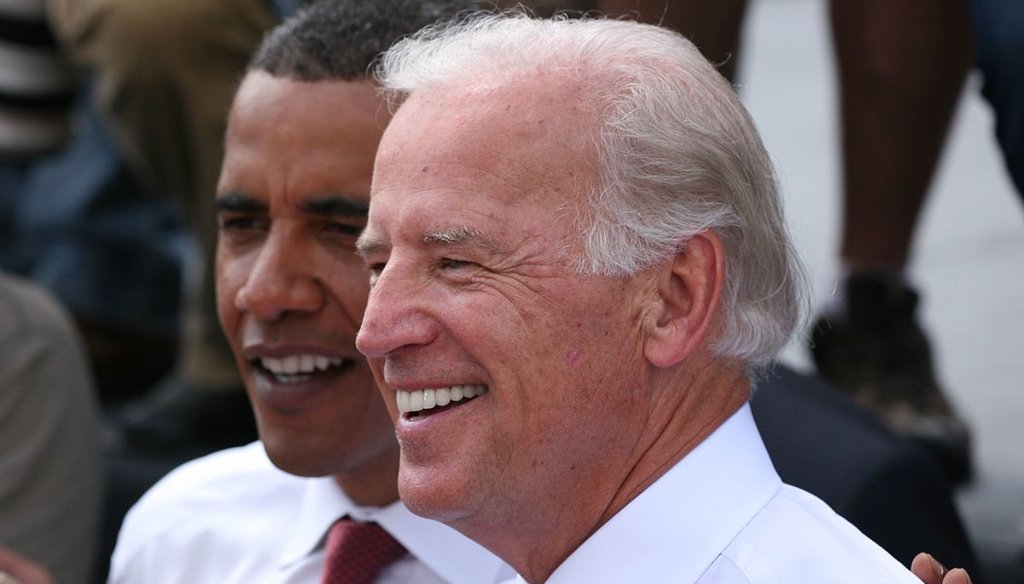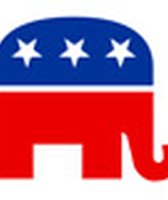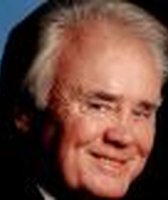Stand up for the facts!
Our only agenda is to publish the truth so you can be an informed participant in democracy.
We need your help.
I would like to contribute

On the campaign trail, Barack Obama said he and Joe Biden would work to reduce partisanship in Washington.
As we reviewed President Barack Obama's campaign promises from his first year, we felt we were missing a big one: Obama's pledge to change the tone in Washington.
It was missing because, a year ago when we created our list of campaign promises, we found many references to changing the tone but no specific, measurable promise. When we finalized our list, that one didn't make the cut.
But now, on his one-year anniversary in office, we've decided to add it to the Obameter database because, even though it is more abstract than the other promises we've cataloged, it was a central part of Obama's campaign.
Here are just a few examples we found of Obama promising bipartisanship:
• In introducing his vice presidential nominee Joe Biden, Obama said, "After decades of steady work across the aisle, I know he'll be able to help me turn the page on the ugly partisanship in Washington, so we can bring Democrats and Republicans together to pass an agenda that works for the American people."
• In a USA Today op-ed on Sept. 18, 2008, Obama wrote: "The only way to end the petty partisanship that has consumed Washington for so long and make a difference in the lives of ordinary Americans is by bringing Republicans and Democrats together to get things done. That's what I've done throughout over a decade in public office."
• In an interview with National Public Radio on Jan. 9, 2008, Obama said that voters are trying to "figure out who is going to be able to best deliver on the change that they want. And the argument that I'm going to keep making is that we can't get that change unless we have a working majority that can attract independents, attract some Republicans. And that is something that I think I can do most effectively as the nominee and, ultimately, as the president."
• Obama listed "bipartisanship and openness" as a topic in his major campaign document "Blueprint for Change." (From which we cataloged his promise to create a bipartisan consultative group on foreign policy. That's rated Stalled.)
So he talked a great game on bipartisanship and it was clearly a central theme of his campaign. To measure his success, we decided to look at how he fared in Congress on his most important legislative initiatives.
On the economic stimulus bill that passed in February 2009, only three Republicans in the Senate supported the measure, and in the House, no Republicans supported it.
On the initial votes for a health care overhaul, he got one Republican in the House but no Republicans in the Senate.
It is worth pointing out that on few lower-profile votes, he did a little better at attracting support from Republicans.
On an early vote to expand the State Children's Health Insurance Program, or SCHIP, six Senate Republicans and 40 Republican House members supported the measure. On the Edward M. Kennedy Serve America Act, a bill to expand community service programs approved in April, 22 Republican senators favored the bill and 26 Republican House members voted for it. And a bill to create a credit card bill of rights won even more support, receiving affirmative votes from 35 Republicans in the Senate and 113 Republicans in the House.
But those votes are the exception in a year when partisan rhetoric has been strident as ever -- so much so that a Republican congressman -- Joe Wilson of South Carolina -- yelled out "You lie!" in the middle of Obama's address to a joint session of Congress.
We won't try to settle the difficult question about who is at fault for the continued partisanship. Democrats say the Republicans have become the "party of no" because they want to deny Obama even the smallest victory. Republicans say the Democrats have locked them out of the process and are simply ramming their agenda through. (We recall similar charges -- in reverse -- when the Republicans were in charge and the Democrats were in the minority.)
But regardless of where you place the blame, Obama has clearly fallen far short on this promise.
At a speech at a Washington church on Sunday, Obama seemed to acknowledge his lack of progress. "There were those who argued that because I had spoke of a need for unity in this country that our nation was somehow entering into a period of post-partisanship. That didn't work out so well."
No, it didn't. One year later, Obama has not "turned the page on the ugly partisanship," as he vowed to do. The parties in Washington are as sharply divided as ever. Party leaders go on TV and do a great job hurling talking points at each other, but only rarely do they actually work together.
It's tempting to rate this one a Promise Broken because there's virtually no sign of progress. This is an election year, so the prospects for bipartisanship are even lower.
But Obama has only been in office one year and much can happen in the next three. So for now, we'll rate this one Stalled and see how he does in the rest of his term.
Our Sources
See promise for sources.













































